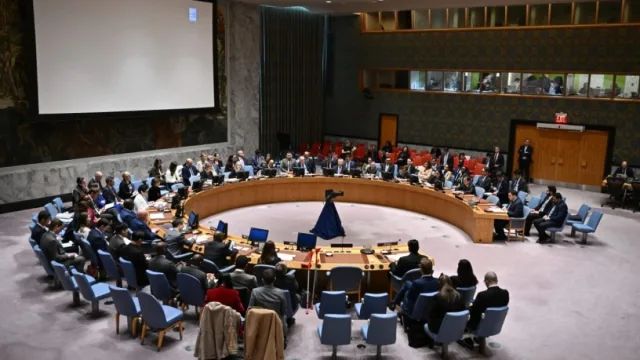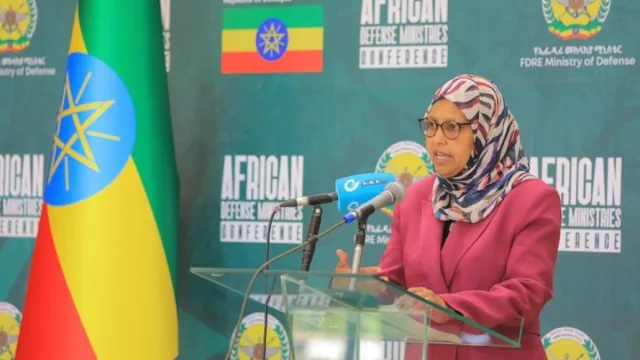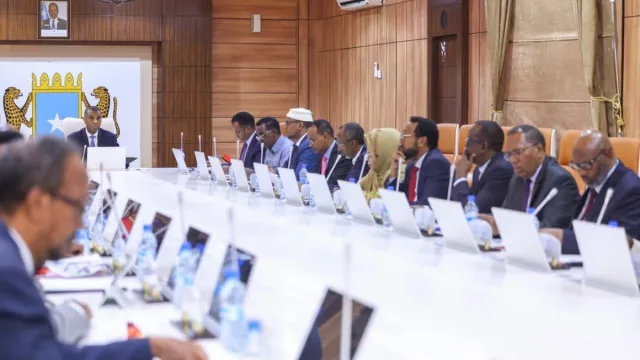“Welcome to Garowe,” thundered the soldier’s thick, husky voice. The soldier was tall, lanky, well-groomed and…

“Welcome to Garowe,” thundered the soldier’s thick, husky voice.
The soldier was tall, lanky, well-groomed and wearing stripped uniform, a button-down shirt open over a garish undershirt, standing in the punishing morning sun.
“We reached the destination now;” declared the driver triumphantly, with quick, impetuous Reer Bari (northeastern) accent, “everyone can break the silent.”
Things have improved here since then. The population has increased exponentially; the streets beam with lights, and more buses are ubiquitous. However, there is one thing that has not changed yet– the prevalence of armed soldiers and–the noisy conductors who cling to the rear side of commercial vehicles.
Last Month, during a series of meetings, religious clerics encouraged local people to come together and seek divine intervention, or what they termed “Roob-doon” (a group prayer invoking for rain). Throngs of people converged at the outskirt of the city offering loud heartfelt prayers, hands raised to the sky, begging the Lord above for rain.
Allah has finally answered people’s loud pleas. It started raining.
When a few more drops of rain spluttered on the ground on the next days, children and teens who, not long ago, had been roaming in the town shirtless, came out screaming in joy “Roob! Roob!” (Rain! Rain!). Although I tried to warn the joyous children not to go out lest they could catch a cold, I myself was elated with the arrival of the rain.
Boys/Men and their love affair with Titles
It was 5:30 pm; my friend Mohamed and I were at Gobsoor restaurant—a hangout place for the young people and officialdoms. It was late afternoon, exactly, when Somalis love to sip “Casariya” (an afternoon tea).
Inside the restaurant, you would find folks sitting in pairs, sipping tea; old men gossiping about clan politics and analyzing the news of the day.
“Hi, Professors and Engineers; what would you like to drink?” a smiling waiter asks.
“Wait, how come you call us with such titles?” I asked.
“Judging by your eye-glasses and physique,” responded, the waiter. “Don’t panic, calling people
with titles is plain ludicrous and comical here,” ”he added.
I over and over again find myself cringing in discomfort when a young man whom I consider enlightened introduces me with titles such as Dr., Eng., or Sir. It is too ridiculous. It bespeaks, I think, a habit of self-ennoblement.
Something in me revolts at such affectation and vulgar, self-To add insult to the injury, during the last elections in Puntland, a friend told me that almost all of the candidates decorated their names with outrageous titles in a field that perhaps only one or two actually deserved titles.
This reminds me Prof. Abdi Ismael Samatar’s quote: “Go to Mother Somalia, you will see the lost titles”
Most of the youth at the restaurant were job seekers, some with questionable credentials–from Uganda, Malaysia, India, Egypt and Sudan.
Aside from the title chase, those youths have another common denominator: The two “C,”—one for complaining and the other for comparing.
Boys are cantankerous and constantly complain about everything such as weather, traffic, local universities, pick-pocketing and internet connections. Such griping is aired as though these problems do not exist in Kampala, Khartoum, or Kuala-Lumpur”.
What about She-Graduates/Girls?
Females mostly subscribe to only one “C”—Comparing. You rarely miss a girl comparing local prices of items to those of Sudan, Uganda, and Malaysia. These girls even throw foreign words to spice up conversations with local shopkeepers. However, my unempirical findings depict that:
A. Somali women are more productive, visionary, and big-hearted than their male counterparts.
B. Somali women are more patriotic than males.
C. Somali women, however, are more culturally vulnerable in assimilating to alien customs than men. They are active in “Copy cat Game”.
Unlike men, women are less interested in title-chase, but they do have mania for watching Musalsal (Arabic Turkish and Indian soap operas).
On that faithful evening, I asked two girls who were sitting behind me: Why do you girls are One of them, laying her eyes on me, said “Mush-Shuqlak, Ba’la” ; An Egyptian slang for “That is none of your business.”
The other girl, not knew whether to laugh or cry, extremely pleased with her friend’s acerbic response, smiled and said: “You gave him one nice shot!”
Abdiwahab M. Ali is freelance writer and social commentator.
Fellow his twitter @Waberijr





